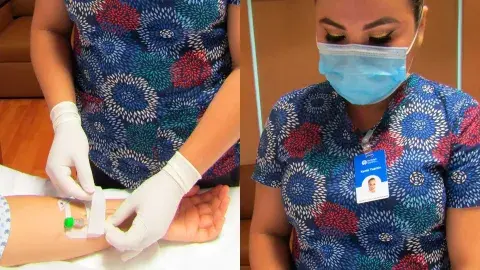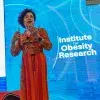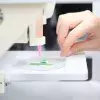Tec de Monterrey has hosted the fifth meeting of the Lancet Commission on Cancer and Health Systems.
Around 100 scientists from 24 countries came together at the Mexico City campus to analyze the public policy changes that need to be made within health systems.
“Despite the great efforts made to develop new therapeutic cancer treatments, it continues to be the second most common cause of death in the world after cardiovascular diseases,” said Dr. Guillermo Torre, Rector of TecSalud.
The commission is made up of an interdisciplinary team of international specialists and researchers working to address global issues related to cancer treatment and health systems.

4 key themes of the meeting
Felicia Knaul, Director of the Institute for Advanced Study of the Americas at the University of Miami and co-chair of the Lancet Commission on Cancer and Health Systems, explained that the meeting had focused on 4 central themes:
- Cancer is one of the most complex health problems that exists in society, and it helps to frame the challenges that public health care systems face.
- The importance of developing innovative public health solutions.
- Investment in the fight against cancer must be based on an economy of hope and planning for a future that promotes scientific innovation and economic growth.
- Redefining health education to strengthen health systems.
The future of undergraduate health education
The School of Medicine and Health Sciences held a series of academic events related to the meeting, to which it invited Julio Frenk, President of the University of Miami and former Minister of Health.
“I’m very grateful to Tec de Monterrey, which has always been a very innovative institution and has provided an example of many of the ideas I’ve discussed here. It’s a pleasure for me to be here,” said Dr. Frenk.
Last October, the former Mexican Minister of Health published an article in the Lancet medical journal about the future of education.
“COVID didn’t create changes in higher education, but it was a disruptive force in education and accelerated the adoption of technologies that allowed educational provision to be maintained during the pandemic.
“In this article, we talk about the challenges and opportunities for educating health professionals after the pandemic. We try to analyze what happened during this decade, what changes have happened, and what we have to do now,” he added.
“We’re obligated not to build just a new normal, but rather a better normal,” Frenk said.
Stimuli for educational change
During his talk, Dr. Frenk discussed three changes in undergraduate health education.
-
Advances in learning sciences
“Cognitive science lets us understand how adults learn in a much better way,” Frenk said.
-
Technological advances
“Education was one of the few areas that didn’t undergo a technological revolution during the 20th century. That began to change with a series of technological advances accelerated by the pandemic,” he explained.
-
Dynamism within the labor market
“We can’t teach students everything they need to know while they’re with us in the faculty building. New generations are going to have to adapt and reinvent themselves,” he said.
Finally, Frenk gave 3 basic recommendations in relation to undergraduate education: embrace lifelong learning, expand competency-based education, and integrate learning technology.

School of Medicine accepts educational challenge
Luis Alonso Herrera, Dean of the School of Medicine and Health Sciences, spoke about the article and the talk given by Dr. Frenk.
“What interests me is how to implement all the changes: the first challenge is that educators have to reinvent themselves, we teachers must reinvent ourselves. In addition to having an open mind, we have to rethink how we convey knowledge.
“Educational service providers must meet the needs of their audience and those needs are changing: we can’t maintain static systems,” he said.
“Educational service providers must meet the needs of their audience and those needs are changing.” - Luis Alonso Herrera
Dr. Guillermo Torre shared his opinion of the article published by Julio Frenk.
“After this talk, I’m coming to realize that the first thing to consider is how we transform and improve the education given to health care professionals and I want to take on that challenge.
“Julio’s talk struck me because only 1% of health spending anywhere in the world is dedicated to education, and in Mexico it’s definitely less,” Torre concluded.
This fifth meeting took place in Mexico City on January 11 and 12.
READ ALSO:






